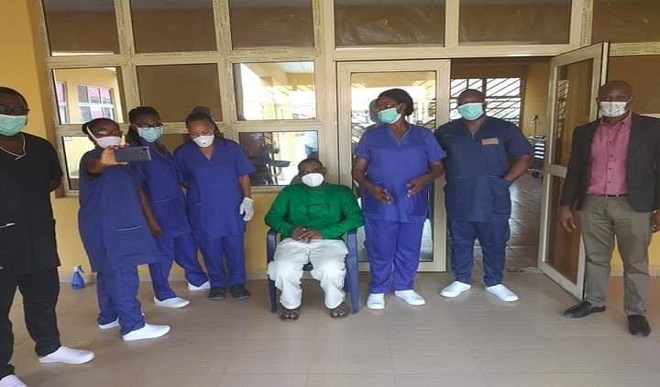Halt medical workers’ incessant strikes
Thousands of patients were forced to endure a week of further agony last week following the decision of the Joint Health Sector Unions (JOHESU) to, before its suspension on Sunday, call out their members on a 7-day warning strike beginning from September 14, 2020. The unions were demanding for the review of the defective implementation […]

Thousands of patients were forced to endure a week of further agony last week following the decision of the Joint Health Sector Unions (JOHESU) to, before its suspension on Sunday, call out their members on a 7-day warning strike beginning from September 14, 2020.
The unions were demanding for the review of the defective implementation of COVID-19 special inducement hazard allowance; payment of all withheld salaries of the members and the adjustment of the Consolidated Health Salary Structure as was done with Consolidated Medical Salary Structure as well as address the structural and infrastructural decay in the health sector.
The strike came after the expiration of a 15-day ultimatum issued to the federal government and the failure of negotiations between the two parties.
The federal government, in its reaction to the strike, described it as illegal and clear breach of the International Labour Organisation’s Principle and Convention on Strikes and Sec. 18 of the Trades Disputes Act, Cap T8, Laws of the Federation of Nigeria, 2004.
Both provisions barred health workers from embarking on strike when the country is facing a health pandemic.
It was an unfortunate situation for the nation as it just came out from another strike by the National Association of Resident Doctors (NARD), who only on September 10, 2020, suspended a week-long strike demanding for the payment of the same hazard allowance.
One could only imagine the number of lives lost and the sufferings of many families as a result of the actions of the two major health unions. Worst still, the actions came when the country is faced with the most trying health challenge ever.
The strike by JOHESU also brought to the fore the inability of both government and unions to resolve simple issues. Apart from the issue of the COVID-19 hazard allowance, all other grievances by the union have been lingering for years without resolution. This clearly shows a failure on both sides to address issues of national importance which, sadly, involve the lives of millions of citizens.
One was expecting that at a time when the nation’s health sector is facing a serious test to cope with the challenge posed by the coronavirus pandemic, both the government and the unions will avoid any situation that would further complicate things.
The government has all along claimed that it has taken several measures to boost the health sector in order to contain the pandemic including taking care of the needs of health workers, who are in the frontline and central to containing of the situation. It is therefore sad that we have had two strikes by two different unions on the same issues it claimed to have addressed.
Governments at all levels must, therefore, be sincere in their approach to situations that have to do with the welfare of their workers. We believe that it is inappropriate for government to agree with the workers over any issue but fail to implement the agreement. This is a surest way of eroding trust.
Union leaders must also keep in their minds that there are other ways of getting their rights without necessarily going on strike. It is immoral for any union leader to embark on strike at a time that the nation is in dire need of its service, especially where it involves the lives of many ordinary people.
It is time that both the government and the unions would find a lasting solution to this. No nation can afford to see the lives of its citizens being wasted just because of an avoidable strike.
